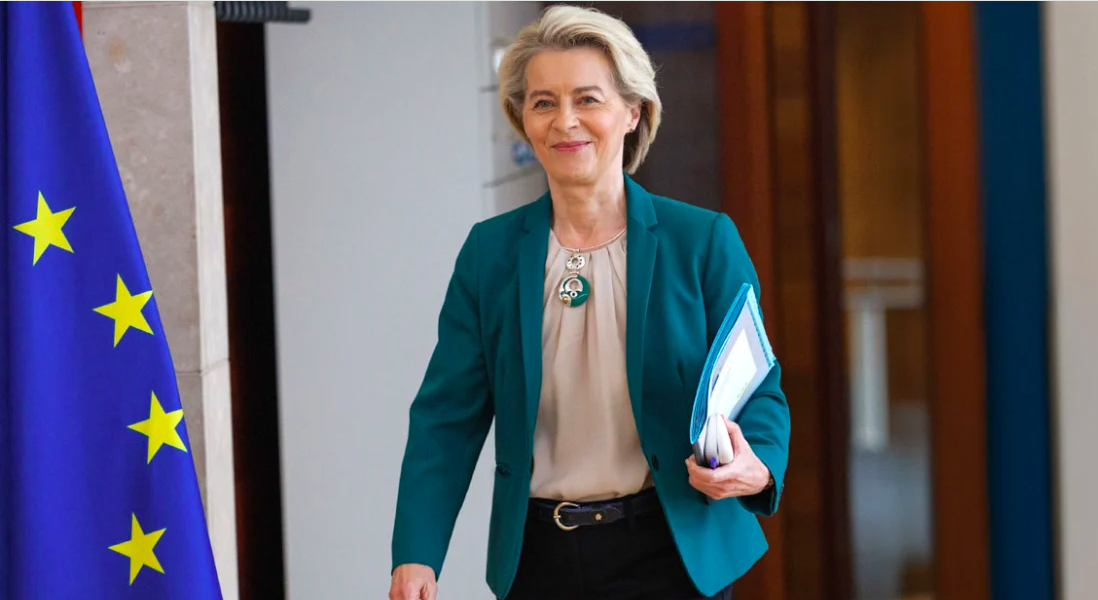As European leaders flock to Washington for the NATO Summit, selecting the new European leadership is in full swing in Brussels. Ursula von der Leyen is engaged in a series of meetings to prevent any accidents in the secret ballot in Strasbourg next week.
Von der Leyen relies on the political agreement of three parties: the People’s Party, the European Socialists, and the Liberals associated with Emmanuel Macron. She is also reportedly engaging in behind-the-scenes talks with the Greens, who, despite their reduced strength, still hold a significant number of MEPs.
The three parties of the initial agreement have 401 MEPs out of 720. Von der Leyen needs 361 votes to remain President for another five years, but this task is not easy, hence her intense personal engagements to avoid surprises.
In a recent test vote, 350 MEPs from the three parties expressed their willingness to vote for the German politician. Objections mainly come from Socialists and French Republicans who did not support von der Leyen at the EPP congress in Bucharest last March.
At the EPP Study Days held recently in Portugal, von der Leyen attempted to close several fronts, while there is also coordination among parliamentary groups to ensure adherence to the agreement reached in the European Council regarding European positions.
The Greek Commissioner
While the vote collection continues, von der Leyen is not holding backdoor talks with European leaders about Commission positions for the next five years. In Greece, there is a belief that the country will receive a good and productive portfolio linked to managing European funds. Portfolios such as Agriculture, Enlargement, and Competitiveness have been mentioned.
The discussion about candidates is heating up, although Prime Minister Mitsotakis insists that the European position takes precedence, followed by the individual candidate. According to verified information from protothema.gr, current Vice-President of the Commission and Greek Commissioner Margaritis Schinas has been informed at a high level that the renewal of his term is highly unlikely. Another prominent candidate being discussed in Athens is Apostolos Tzitzikostas, Regional Governor of Central Macedonia and a long-standing member of the EU’s Committee of the Regions. Mitsotakis highly believes Tzitzikostas and values his contribution to the ND’s election campaign.
The possibility of a Cabinet member moving to Brussels is considered unlikely, as it would trigger a mini-reshuffle.
Patriots for Europe
In Brussels, a new alliance has emerged on the Right, with Marine Le Pen’s party forming an agreement with Hungarian Prime Minister Viktor Orbán. Orbán also courted Giorgia Meloni, leader of the ECR, but ultimately chose the agreement with Le Pen. The new parliamentary group will be the third-largest in the European Parliament with 84 MEPs, led by Jordan Bardella, Le Pen’s party’s prime ministerial candidate in the recent French legislative elections. Aphrodite Latinopoulou’s “Voice of Reason” party also joined this new alliance, despite Latinopoulou’s political closeness to Meloni. In contrast, Kyriakos Velopoulos’ Greek Solution remains with Meloni’s alliance, retaining its two MEPs.
Ask me anything
Explore related questions





